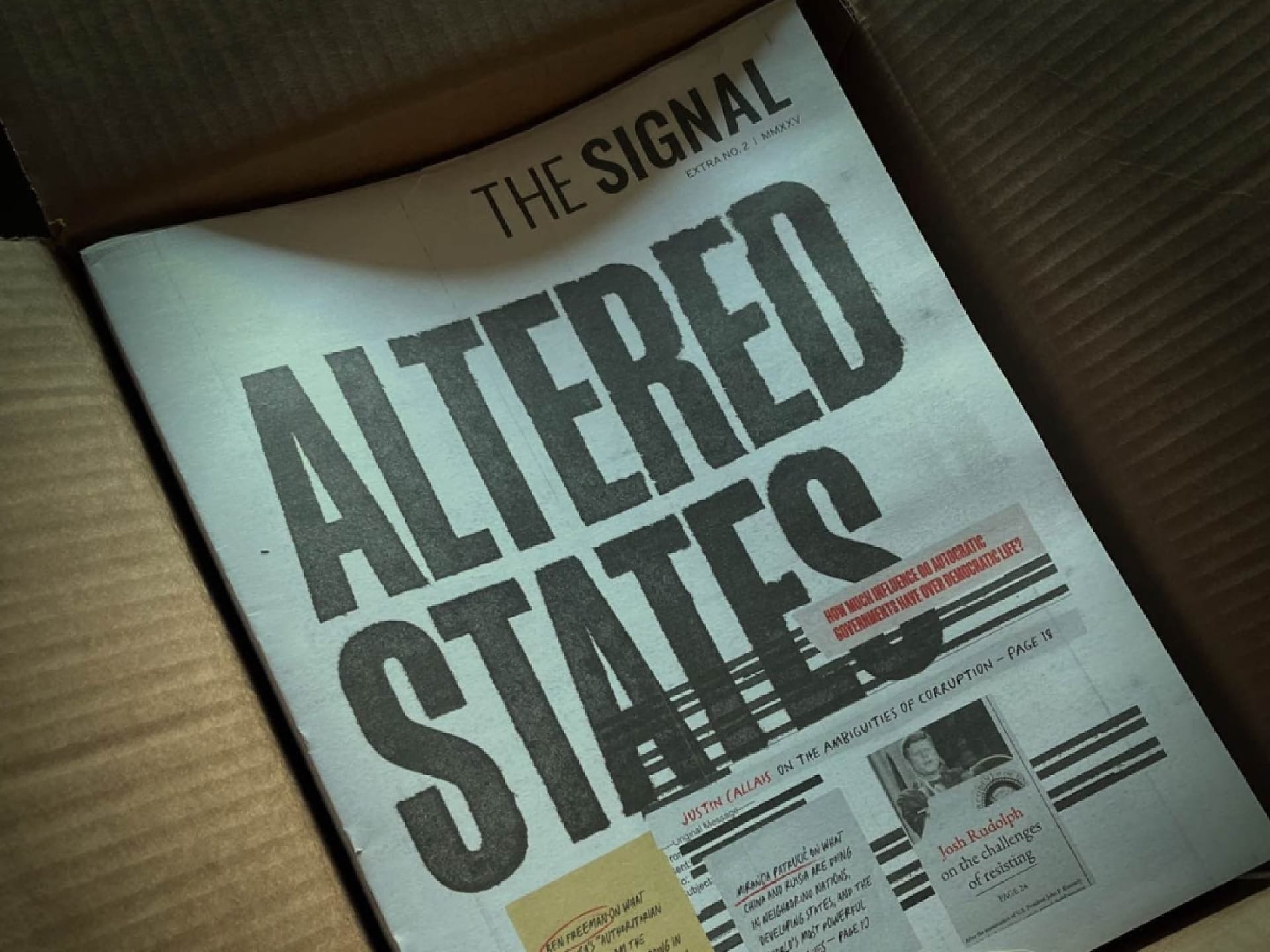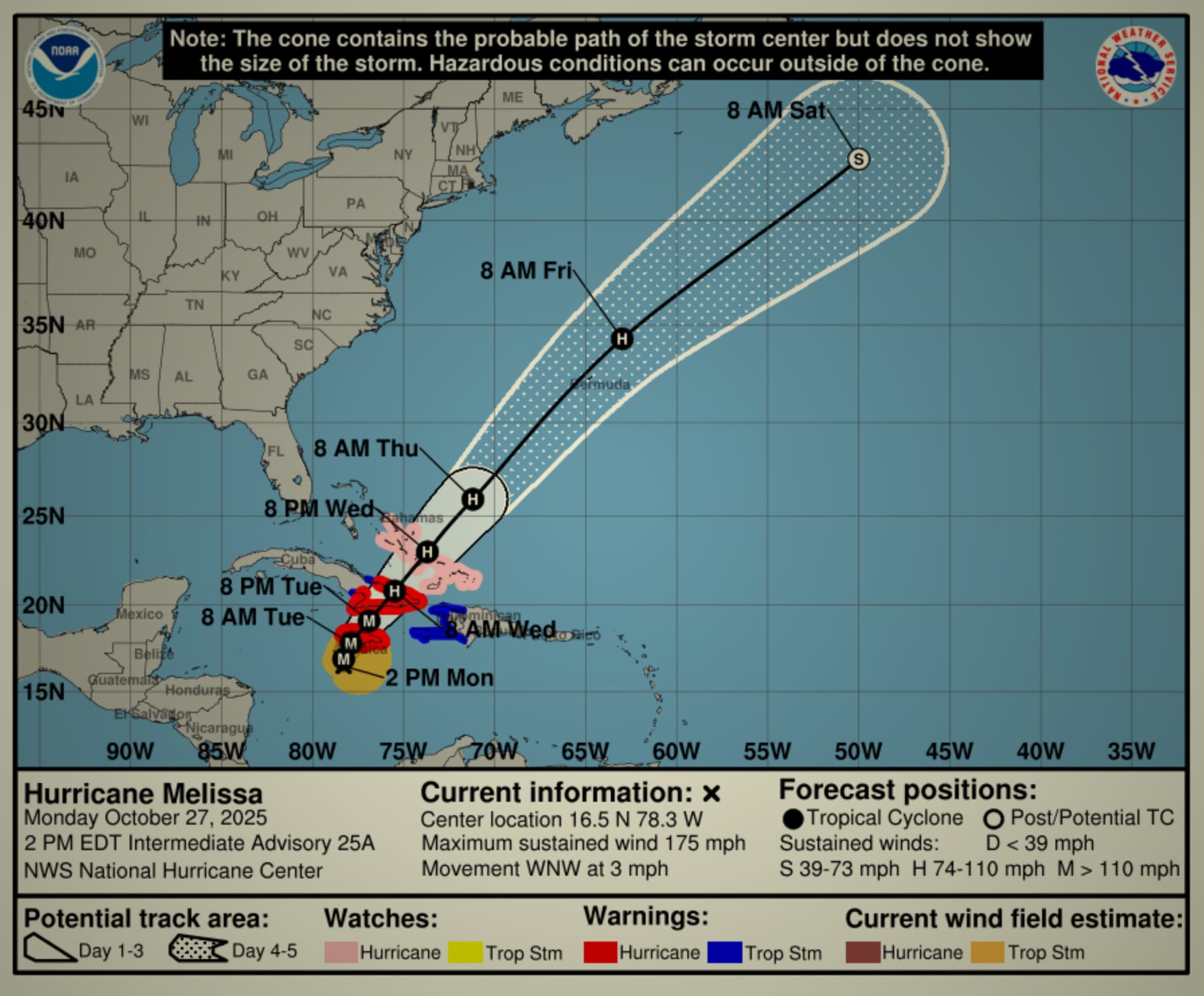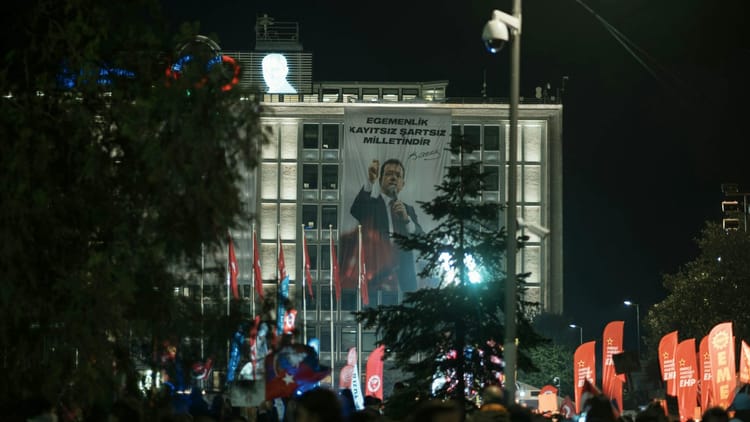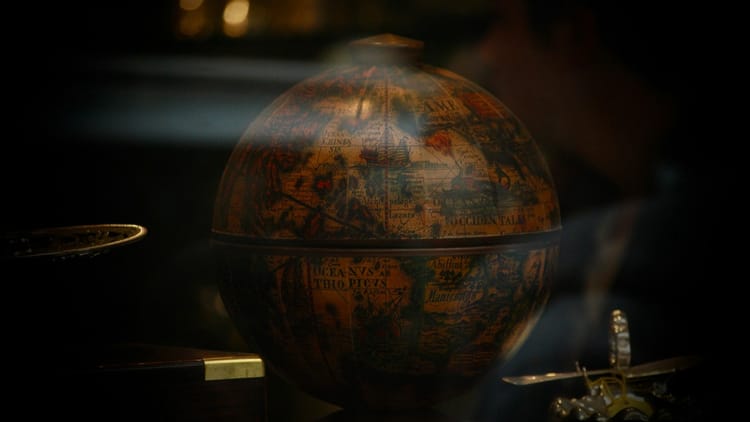Kicking it down the road again

Recently: The weekend despatch: The slow menace of Hurricane Melissa. The dinosaurs felt fine. + What is raptor house?
Today: What exactly did the United States and China agree to on Sunday? Both sides call it a “framework.” Neither is specifying when rare-earth controls pause, what fentanyl cooperation means, or how much soybeans Beijing is going to buy.
+ For members: What are all these American troops actually doing in the Caribbean?
& New music from Kelly Lee Owens ...
Framework diplomacy
The United States and China reached what their negotiators called a “preliminary consensus” and “very successful framework” on Sunday in Kuala Lumpur, averting the 100 percent tariffs U.S. President Donald Trump had threatened to impose on Chinese goods starting November 1. The American Treasury Secretary, Scott Bessent, told reporters he expected China to defer its expanded export controls on rare-earth minerals and magnets by a year while the two countries reconsider the policy. Negotiators are saying they’d discussed expanding trade volumes, Chinese efforts to halt fentanyl-precursor-chemical exports, and Beijing’s purchases of American soybeans—with Trump’s team emphasizing that American farmers would be “extremely happy” with the terms.
The language points at what both sides are deferring rather than resolving. China’s top trade negotiator Li Chenggang described a “preliminary consensus” that still needs internal approval processes. Bessent frames it as groundwork for Trump and Xi Jinping to finalize when they meet Thursday in South Korea. The mechanisms remain vague: How exactly will China demonstrate fentanyl cooperation? What constitutes “substantial” soybean purchases? When do rare-earth controls actually pause, and for how long?
The framework does bear a certain resemblance to the Gaza ceasefire plan from earlier this month, where Trump declared victory even with Hamas sidestepping disarmament and governance questions—questions kicked to an implementation phase that may never come. Here, both sides push the November 1 deadline back, make the South Korea meeting the new focal point, and leave the hardest questions about rare-earth licensing, technology export controls, and the durability of agricultural commitments unaddressed. Markets rallied on the news. The S&P 500 gained more than three-quarters of a percent.

How much influence do dictators have over democracies? Our second limited-run print magazine, Altered States …
Currently available in the U.S.A. If you’re interested in ordering internationally, have any questions, be in touch: concierge@thesgnl.com.
Meanwhile
- Two arrested, jewels still missing. French authorities arrested two men on Saturday evening in connection with the Louvre heist, with one detained at Charles de Gaulle Airport attempting to board a flight to Algeria. Both suspects, in their thirties and from the Paris suburbs, had prior robbery convictions. Prosecutor Laure Beccuau said premature leaks could hinder investigators still trying to recover the eight missing Napoleonic jewels—valued at $102 million—stolen in last Sunday’s seven-minute operation. Authorities haven’t said whether the arrests led to any jewelry recovery. … See “Four minutes inside.”
- An easy victory in Buenos Aires. Argentina’s Javier Milei won 41 percent of the vote in Sunday’s midterm elections, defeating the left-leaning Peronist opposition’s 31 percent in what many view as a referendum on Milei’s austerity program. Trump had explicitly conditioned a potential US$40 billion bailout on Milei's performance, saying, “If he doesn’t win, we’re not going to waste our time.” Milei’s party tripled its lower house seats to 101, securing support to uphold vetoes and prevent impeachment. Turnout hit the lowest level since democracy’s return to Argentina in 1983.
- Perfect scan, possible third term. Trump told reporters on Monday that he underwent an MRI earlier this month with “perfect” results but declined to say why doctors ordered the scan. At 79, Trump is the oldest person elected president and has faced speculation after appearing with hand bruises and swollen ankles. Trump also said he “would love” a third term because of his popularity. The Constitution’s 22nd Amendment limits presidents to two terms, though Trump and supporters have floated circumventing it. Last week, Stephen Bannon told The Economist he and others were working on a plan to this end.
- Left turn in Ireland. The independent legislator Catherine Connolly won Ireland’s presidential election on Saturday with 63 percent, defeating center-right candidate Heather Humphreys’ 29 percent. Connolly, 68, a former barrister backed by left-leaning opposition parties including Sinn Féin, ran on criticism of Israel’s Gaza war, skepticism toward European Union military spending, and advocacy for Irish neutrality. The largely ceremonial role represents Ireland internationally but holds no power to shape laws. Connolly will be Ireland’s tenth president and third woman in the office, succeeding Michael D. Higgins.
- Slouching toward Kingston. Melissa intensified over the weekend from a tropical storm into a Category 5 hurricane, fueled by warm ocean waters, low wind shear, and deep atmospheric moisture. By Monday, sustained winds exceeded 260 kilometers an hour. The storm is now crawling toward Jamaica at just 7 kilometers an hour—meaning catastrophic conditions could last for days—threatening up to 76 centimeters of rain there. It should make landfall early Tuesday morning.

From the latest despatch
Ghosts of Panama
Since early September, American military forces have killed at least 32 people in eight strikes on boats in Caribbean and, now, Pacific waters. U.S. Defense Secretary Pete Hegseth calls the dead drug smugglers operating along “known narco-trafficking transit routes,” emphasizing the government of Venezuela’s complicity with them.
To date, the administration has offered no evidence to back its claims—no cargo manifests, no photographed contraband, no crew identifications, no boarding documentation. Officials have announced each strike, cited intelligence assessments, and that’s more or less it. They’ve sent two survivors from one attack back to where they were from—Colombia and Ecuador—neither of which is Venezuela, both of which, notably, export more cocaine than Venezuela does.
On Tuesday, American forces destroyed another vessel—this one in the eastern Pacific, the first strike outside the Caribbean. But the pattern is now repeating: Destroy boats at sea, claim drug smuggling, move along.
The U.S. military infrastructure in the Caribbean has meanwhile been growing. Some 10,000 American troops now operate there—Marines, sailors, special operations forces. Eight warships are patrolling the waters off Venezuela, including guided-missile destroyers and a submarine capable of firing Tomahawk cruise missiles. There’s an F-35 squadron operating from Puerto Rico. B-1 and B-52 bombers fly up to Venezuela’s coast in what the Pentagon calls “bomber-attack demonstrations.” And on October 15, President Donald Trump confirmed that he authorized the Central Intelligence Agency to conduct covert operations inside Venezuela. On Wednesday, he told reporters the United States was “certainly looking at land now” for strikes—having gotten “the sea very well under control.”
Your loyal guide to a changing world.
Membership with The Signal means exclusive access to premium benefits:
- Regular profiles on the questions behind the headlines
- In-depth feature interviews with our network of specialist contributors from across America and around the world
- The despatch, our weekly current-affairs and cultural-intelligence briefing
- Early access to new products, including print extras
It also means vital support for an independent new enterprise in current-affairs journalism.
New music
‘Ascend’
After the trance-focused album Dreamstate, the Welsh club producer Kelly Lee Owens is back with a harder-edged sound. Think driving techno, with ethereal vocals and a Morse-code melody. And Kelly’s giggle right before the beat drops at 1:08 is perfect.





